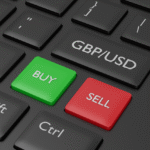Russia’s main exchange said it’s halting trading in US dollars and the euro after President Joe Biden’s administration unveiled a raft of measures designed to further isolate Moscow from the international financial system over its war in Ukraine.
The Moscow Exchange from Thursday halted trading on the foreign exchange, precious metals, stock, money and the standardized over-the-counter derivatives markets in instruments with settlement in dollars and the European single currency. The company, known as Moex, was targeted along with the country’s main settlement depository, by US restrictions announced late Wednesday.
The MOEX Russia Index opened down as much as 4% in Moscow on Thursday.
The move has sown confusion among markets over the fallout from the sanctions. The changes are likely to lead to increased costs for market participants due to higher commissions and wider bid-ask spreads as well as unfavorable exchange rate fluctuations.
Any settlement with a foreign counterpart and foreign trade operations may be negatively affected, and the restrictions could also have an impact on yuan trading, which now accounts for more than half of foreign currency exchange.
Russia’s authorities have sought to move away from the dollar and euro, branding them “toxic” amid sanctions over President Vladimir Putin’s February 2022 invasion of Ukraine. The share of the yuan in trading has increased, while officials have pursued measures to discourage businesses and people from using the currencies of nations that have imposed restrictions.
“Transactions in dollar and euros for individuals have already been significantly limited for quite some time,” said Sofya Donets, an economist at Tinkoff Investments. “For the average Russian, nothing much will change.”
“What will not change is the continued strengthening of the yuan’s position in Russia,” Donets said. Despite some concerns that settlements involving China’s currency may be affected, the sanctions weren’t designed to limit its use, she said.
Transactions with the dollar and euro will still be available on the over-the-counter market, the Bank of Russia said in a statement. The regulator said it will use bank and OTC data to set the ruble’s exchange rates to those currencies.
The central bank also delayed the start of trading Thursday on the foreign exchange and precious metals markets to 9:50 a.m. Moscow time from 6:50 a.m.
What Bloomberg Economics Says…
“Escalation of sanctions will destabilize the currency market and shift flows towards private non-sanctioned banks. The next step of escalation can be secondary sanctions on foreign banks that help with settlements.” Alexander Isakov, Russia economist.
Daily trading in the dollar started in Russia more than three decades ago. The share of currencies Russia has labeled as toxic, which include the greenback and euro, fell to 45.9% in exchange-based foreign currency trading in May, while the yuan’s share rose to a record of 53.6%, according to the Bank of Russia’s data.
“Companies and individuals can continue to buy and sell the US dollar and euro through Russian banks,” the central bank said, adding that all funds in those currencies in accounts and deposits “will remain safe.”
Russia’s shift away from western currencies since sanctions were first imposed over the 2014 annexation of Crimea may limit the disruption from the US penalties.
“Overall, there is a sense that the main costs are related to lack of information about exchange rates and flows, but not to the shortage of currency,” said Evgeny Koshelev, an analyst at Rosbank. “The cost of alternative conversion channels for exporters are relatively fixed, albeit not small. For importers, they could increase at first, then a return to the previous level is possible.”
The Bank of Russia has been preparing for the possibility that the country’s only foreign-exchange clearing house falls under sanctions since last year. To avoid a collapse in settlements, the regulator had developed additional mechanisms for determining official exchange rates in the absence of data from the Moscow Exchange.
“The biggest effect is the effect on the Moscow Exchange itself,” Donets said. “Even then, it’s not critical.”


















